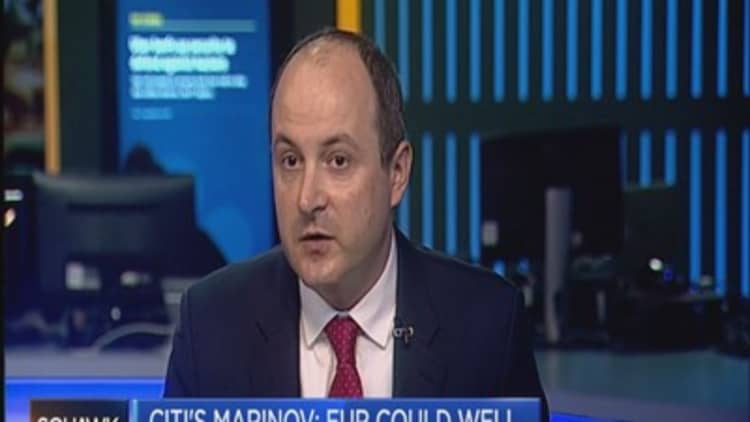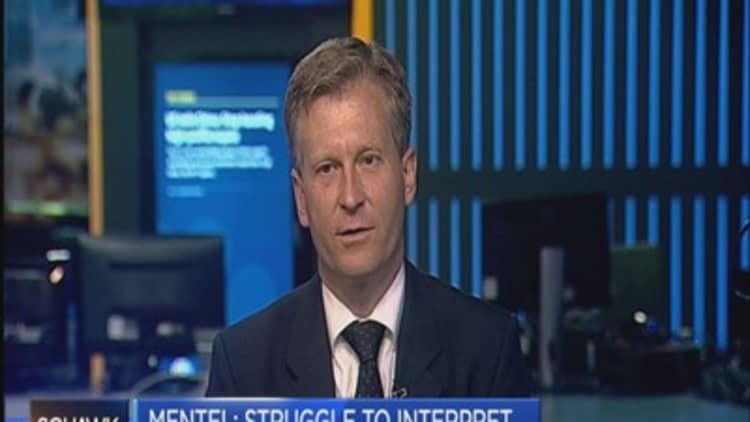Emerging markets currencies took it on the chin Monday as commodity prices and China's devaluation continued to wreak havoc around the world, with one analyst telling CNBC that the selling would only intensify.
The Russian rouble was around 1 percent lower against the dollar and managed to hit a six-month low, before regaining some ground. The Turkish lira also fell sharply and hit a fresh record low of 2.847 against the U.S. dollar. The Israeli shekel also saw significant weakness as did Asian currencies overnight like the and the Malaysian ringgit.
Luis Costa, the head of CEEMEA FX and rates strategy at Citi, told CNBC via email that he believes there is a now a "concerted move" in emerging market foreign exchange and predicted that it will have more room to run.
"Our flow monitors show very clearly investors corrected very sharply their complacent USD-EM positions," he added in a note on Monday.
Currency trade dead?

Costa also suggested that the carry trade for emerging markets - where investors borrow in a low yielding currency to fund investments in higher yielding assets somewhere else - was now dead.
The conflict in northern Iraq and Syria was seen as a major driver behind the fall of the Turkish lira alongside a rate decision which is due from its central bank this week. Increased fighting in eastern Ukraine and lower oil prices also accentuated the move lower for the rouble, according to analysts. Oil is another factor, according to John Haynes, head of research at Investec.
"Undoubtedly there is a polarization of the prospects of commodity producing and reliant economies and those who use commodities. I think we're very well aware of those people who are on the other side of the coin and clearly Russia is one of them," Haynes told CNBC Monday.
However, market-watchers were clear that China's devaluation of the yuan last week and an imminent rate rise by the U.S. Federal Reserve were the real forces currently weighing on the currency markets.
"We sense investors are re-focusing once again in Fed policy," Costa added in his morning note Monday. "We now have ample reasons to believe the trend in USD-EM may probably intensify in the run-up to the September policy meeting."
Hit to other assets?

The dollar has enjoyed a stellar appreciation against a basket of major global currencies in the last year or two and the dollar index is up nearly 7 percent year-to-date. Ultra-low interest rates and quantitative easing had seen money flow into emerging markets in the years following the financial crash of 2008. However, that now looks to be reversing with U.S. investors pulling their money homewards with the promise of higher yields.
Reports in the Australian media over the weekend drew comparisons between current events and the Asian currency crisis of 1997. Stuart Richardson at RMG also shared similar concerns in his research note on Monday morning.
Meanwhile, Valentin Marinov, director of FX Strategy at Citi, told CNBC Monday that the fall in commodity currencies could also hit asset prices in countries whose economies rely on commodities such as iron ore. Costa added in his research note that emergency market funds were seeing cyclical highs in short-interest.
"It wouldn't take much to see further downside pressure on equity flows to a few selected economies," he said. "In Turkey, that becomes an important negative catalyst, given the high uncertainty on the political front."


